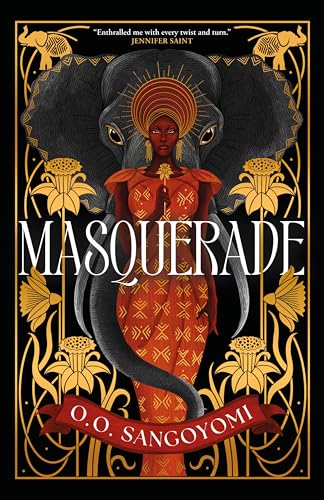Masquerade
In the 15th century, nineteen-year-old Òdòdó works with her mother and other older women as a lowly blacksmith helper in Timbuktu. Strikingly beautiful and self-assured, she is noticed by the warrior king of the vast region to the south, called Yorùbáland. The king arranges her kidnapping and clandestine transport to his capital city, where he plans to soon make her his wife.
Òdòdó must quickly learn to live a life of luxury. She also faces jealousy and disdain from her future mother-in-law, as well as from the king’s first wife, the king’s most trusted generals, and even commoners and slaves. She desperately wants to bring her mother to her new home before the wedding—but no one can find her mother.
Larger problems vex her king and his massive armies. An unexplained ivory glut threatens the empire’s economy. Quite suddenly, well-armed slaves revolt, and blacksmiths throughout the land stop producing weapons for the king’s soldiers. Portugal launches an invasion from the north across the Sahara. Òdòdó’s insights and clever suggestions help the king resolve these challenges. His enthusiasm for a lavish wedding grows, and he secretly trains her in warrior skills, unheard of for women. Her detractors notice and become ever more dangerous.
Sangoyomi presents the largely unknown, but fascinating history of the actual Yorùbá empire, its spiritual beliefs, and how it functions. Details about the lives of the wealthy and poor, their foods and clothes, their joys and resentments run through the story. Òdòdó’s intensely personal transformation, while often brutal right up to the last pages, suits that time, place and culture. This debut novel about the pre-Nigerian empire and people will stay with readers long after they close the book. Highly recommended.










